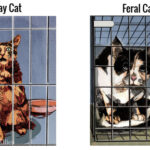Cats are known for their quirky behaviors and sometimes, their unexpected food preferences. If you’ve ever found your feline friend eyeing your sugary snacks, you might have wondered, “Can Cats Have Marshmallows?” It’s a common question, especially when our curious companions show interest in human foods that seem completely outside their natural diet. Let’s delve into why your cat might be drawn to marshmallows and whether these puffy treats are safe for them to consume.
Why Are Cats Interested in Marshmallows?
Despite the common belief that cats can’t taste sweetness, some cats exhibit a peculiar fascination with marshmallows. This isn’t because they’re craving sugar, as their taste buds aren’t wired to detect sweet flavors in the same way humans do. So, what’s the real attraction? Several theories attempt to explain this puzzling feline behavior:
- Gelatin Appeal: Marshmallows are made with gelatin, a protein derived from animal collagen. This ingredient could be the primary draw for cats. As obligate carnivores, cats are naturally attracted to animal-based proteins, and the gelatin in marshmallows might trigger their instinctual protein cravings.
- Texture Curiosity: The soft, spongy texture of a marshmallow might be intriguing to cats. Cats are known to enjoy a variety of textures, and the unique, airy consistency of a marshmallow could be something they find novel and pleasant to mouth or play with.
- Vanilla Scent Association: Many marshmallows are flavored with vanilla. While not definitively proven, it’s speculated that cats might be drawn to the vanilla aroma. Vanilla is sometimes compared to catnip in its ability to attract cats, although this is not scientifically confirmed. It’s possible a subtle scent component in vanilla extract appeals to some felines.
- Fat and Other Ingredients: Beyond gelatin and vanilla, marshmallows contain other ingredients like cornstarch and sometimes fat. These components, while not sweet, could contribute to the overall palatability for certain cats. It’s a combination of these non-sweet elements that likely sparks a cat’s interest, rather than a sugar rush.
Are Marshmallows Safe for Cats?
While a lick or tiny nibble of a marshmallow might not cause immediate harm, marshmallows are generally not a safe or healthy treat for cats. Here’s why:
- High Sugar Content: Marshmallows are loaded with sugar, often in the form of refined sugar and high fructose corn syrup. Excessive sugar intake is detrimental to a cat’s health, potentially leading to weight gain, dental problems, and even diabetes over time.
- Artificial Sweeteners (Xylitol): Some sugar-free marshmallows contain artificial sweeteners like xylitol. Xylitol is extremely toxic to cats and can cause a rapid release of insulin, leading to a dangerous drop in blood sugar (hypoglycemia), liver failure, and even death. Always check the ingredient list and ensure the marshmallows do not contain xylitol or any other artificial sweeteners toxic to cats.
- Other Unhealthy Ingredients: Marshmallows may contain artificial colors, flavors, and preservatives that offer no nutritional value and could potentially cause digestive upset in sensitive cats.
Healthy and Safe Treat Alternatives for Cats
Instead of offering marshmallows, there are plenty of safe and healthy treat options to indulge your feline companion:
- Commercial Cat Treats: Specifically formulated cat treats are designed to be nutritionally balanced and safe for feline consumption. They come in a variety of flavors and textures that cats love.
- Cooked Meat and Fish (Plain): Small pieces of plain cooked chicken, turkey, or fish (like salmon or tuna) without bones or seasonings can be healthy and protein-rich treats.
- Certain Vegetables (in moderation): Some cats enjoy small amounts of cooked carrots, broccoli, or green beans. Always ensure vegetables are cooked and offered in moderation.
Conclusion
While your cat’s curiosity towards marshmallows might be piqued by their gelatin content, texture, or aroma, these sugary treats are not a suitable snack for felines. The high sugar content and potential presence of toxic artificial sweeteners like xylitol pose significant health risks. It’s best to err on the side of caution and keep marshmallows away from your cat. Opt for healthy, cat-specific treats or safe, lean protein snacks to reward your furry friend and keep them happy and healthy. If you have any concerns about your cat’s dietary habits or suspect they have ingested a harmful substance, always consult with your veterinarian for professional advice.

